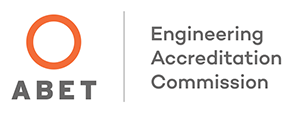Program Accreditation – Engineering Physics
Bachelor of Science (B.S.) Degree in Engineering Physics
The Engineering Physics program is accredited by the Engineering Accreditation Commission (EAC) of ABET, under the commission’s General Criteria and Program Criteria for Engineering Physics. This program leads to a Bachelor of Science degree in Engineering Physics.
Program Data

